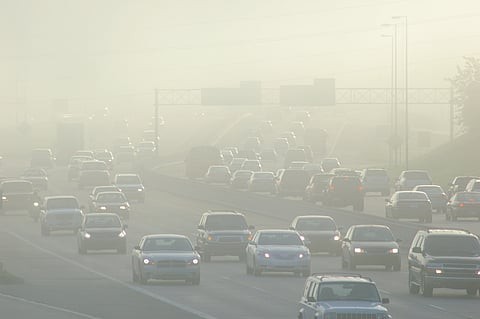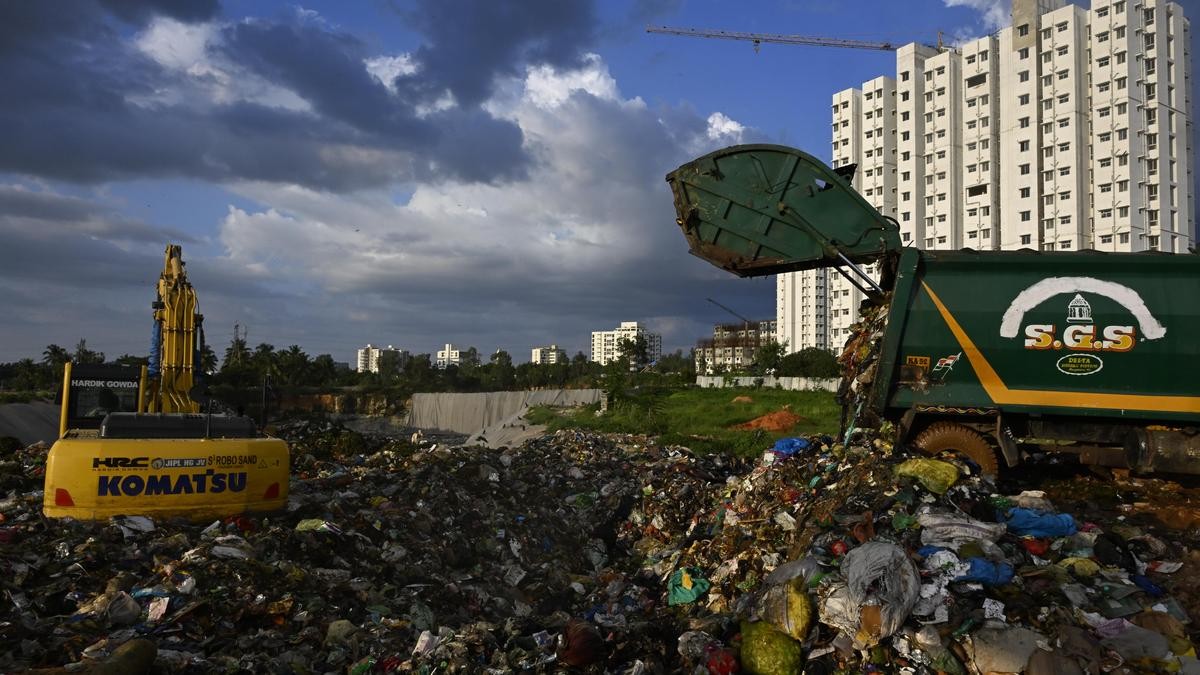Description

Copyright infringement not intended
Picture Courtesy: https://www.hindustantimes.com/cities/delhi-news/sc-revisits-its-own-order-puc-not-mandatory-to-renew-car-insurance-101722015476799.html
Context: Recently the Supreme Court of India revisited and overturned a significant directive it had issued in 2017 concerning the requirement of a Pollution Under Control (PUC) certificate for renewing car insurance policies.
|
Pollution Under Control (PUC) Certificate
●The Pollution Under Control (PUC) Certificate is a key document that vehicle owners in India must possess to legally drive or ride their vehicles.
●It is issued by authorized emission testing centres after a thorough inspection of the vehicle's exhaust gas to ensure that emission levels are within permissible limits set by the government.
●The PUC Certificate contains information such as the serial number, vehicle registration number, date of the test, validity period, test readings, and cost.
●The certificate has a one-year validity for new vehicles, with regular tests required thereafter.
●The testing criteria for the PUC Certificate include parameters like the manufactured year, carbon monoxide percentage, and hydrocarbon levels. Any vehicles exceeding the specified limits during testing will be reported to the relevant transport authorities.
●To obtain a PUC Certificate, one can either visit an authorized emission testing centre or download it online through the Parivahan portal.
|
Background of the 2017 Directive
Context of the 2017 Order
- Issuance: The directive was part of a broader effort to combat pollution in Delhi and was issued in August 2017.
- Reason for the Directive: The order was passed on the recommendation of the Environment Pollution (Prevention and Control) Authority (EPCA), a statutory body that advises on environmental issues.
- Requirement: The 2017 order mandated that a valid PUC certificate was necessary to renew a third-party insurance policy for vehicles. This was intended to ensure that only vehicles meeting emission standards could be insured, thereby reducing pollution.
|
Environment Pollution (Prevention and Control) Authority (EPCA)
●The Environment Pollution (Prevention and Control) Authority (EPCA) was established under the Environment (Protection) Act, 1986 for the National Capital Region (NCR) as per a Supreme Court order in January 1998.
●EPCA has the authority to act on its own or in response to complaints from individuals or organizations related to environmental issues.
●It focuses on controlling vehicular pollution, enforcing fuel quality standards, and coordinating traffic planning and management.
|
Issues with the 2017 Directive
Problems Highlighted by the General Insurance Council (GIC)
- Insurance Coverage Impact: The General Insurance Council (GIC), argued that the directive had unintended negative consequences. About 55% of vehicles were not covered by insurance due to the PUC requirement.
- Impact on Motor Accident Victims: The absence of insurance coverage made it difficult for victims of road accidents to receive compensation, as uninsured vehicles could not be covered for third-party liability.
Implementation Challenges
- Linking PUC with Insurance: The directive linked PUC certificates with insurance renewal. Since PUC certificates are valid for only six months, this linkage caused issues when vehicles did not renew their PUC certificates on time. As a result, insurance policies could not be renewed, leading to a significant number of uninsured vehicles.
- Lack of Hearing: GIC claimed that the order was passed without proper hearings from the insurance companies, which led to unintended consequences.
Supreme Court’s Revised Decision
- Bench and Decision: The court acknowledged that strictly enforcing the 2017 order could have disastrous effects, such as leaving many vehicles without third-party insurance.
- Modification of the Directive: The Supreme Court’s recent order effectively removes the requirement for a valid PUC certificate to renew a third-party insurance policy.
Rationale for Reversal
Balancing Environmental and Insurance Needs
- Importance of Insurance: The court recognized that ensuring all vehicles have third-party insurance is crucial for protecting victims of road accidents and ensuring financial accountability.
- Environmental Compliance: While the directive was aimed at reducing pollution by ensuring vehicles meet emission standards, the court noted that it was essential to find a balance between environmental regulations and practical aspects of vehicle insurance.
Precedent for Future Actions
- Collaboration for Solutions: The court's decision also highlighted the need for better coordination between environmental regulations and insurance policies. It suggested that future measures should balance environmental goals with practical considerations to avoid negative impacts on insurance coverage.
Legal and Practical Implications
For Insurance Companies and Vehicle Owners
- Insurance Coverage: The removal of the PUC requirement for insurance renewal is expected to increase insurance coverage rates, thereby providing better protection for accident victims.
- PUC Compliance: Vehicle owners are still required to maintain PUC certificates for compliance with emission standards, but the link between PUC and insurance renewal has been removed.
For Environmental Protection
- Continued Efforts: The court's decision does not negate the importance of pollution control. It emphasizes that while ensuring vehicles are compliant with emission norms is important, it should not come at the expense of necessary insurance coverage.
For Future Regulations
- Need for Comprehensive Solutions: The case highlights the need for comprehensive solutions that address both environmental concerns and practical challenges in the vehicle insurance sector.
Conclusion
- The Supreme Court’s decision to overturn its 2017 directive highlights the complex interplay between environmental regulations and practical issues in vehicle insurance. By removing the requirement for a valid PUC certificate for renewing third-party insurance policies, the court aims to balance the need for environmental protection with the necessity of providing adequate insurance coverage for motor accident victims.
Source:
Hindustantimes
Groww
|
PRACTICE QUESTION
Q. Evaluate the effectiveness of the Pollution Under Control (PUC) certificate system in reducing vehicular emissions in urban areas. Consider the challenges faced in its implementation and suggest potential improvements.
|












